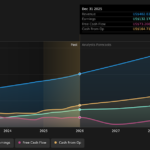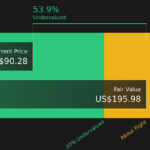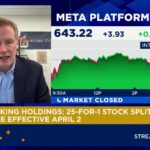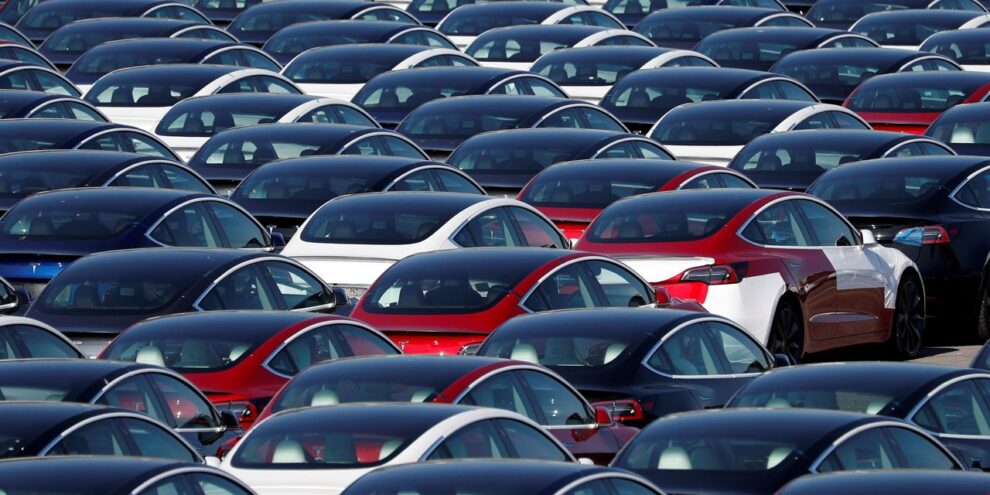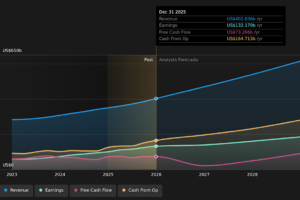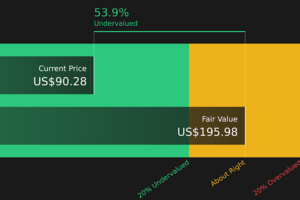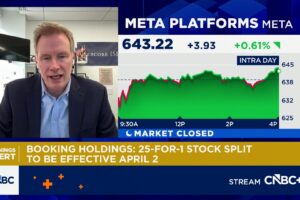
Investors continued to sell Tesla shares on Thursday after earnings disappointment, but Wall Street analysts were waiving some of their biggest concerns, such as weak margins.
Tesla shares TSLA, -2.71% traded as low as $801 and were recently down 2%, on the heels of a selloff Wednesday after Tesla’s fourth-quarter results.
Opinion: Apple justifies its huge valuation, while Tesla…not so much
Tesla reported an adjusted profit in the fourth quarter of 80 cents and a 46% gain in revenue, at $10.74 billion. But Wall Street analysts were looking for adjusted earnings of $1.02 and sales of $10.47 billion. They were also looking for direct guidance on 2021 sales, which they didn’t get.
The Silicon Valley auto maker said it planned to grow its manufacturing capacity “as quickly as possible,” and as far as deliveries, its proxy for sales, it expects to reach a 50% average annual growth over a “multiyear horizon.” Executives said Wednesday they expect to grow more than that in 2021.
The lack of a clear-cut deliveries outlook “will be mixed bag,” Chris McNally at Evercore ISI said in a note.
Bulls and bears will debate the lack of a formal delivery outlook guide, he said, with bulls pointing at the implication that Tesla would get to 3.88 million units by 2025 and bears pointing at the implied 2021 guide around 750,000, which would compares with previous Wall Street expectations of around 800,000 to 850,000.
Deutsche Bank analysts said in their note Thursday they’d “use any post-earnings (Tesla) weakness to accumulate shares, based on solid underlying 4Q20 operational performance, and ahead of what should be a great year for the company.”
The analysts, led by Emmanuel Rosner, highlighted “material acceleration in deliveries, new plants and geographies, new products and segments, and large upside optionality from FSD,” Tesla’s self-driving software.
Weaker margins — net sales made on its automobiles after deducting costs — were another worry that cropped up for investors, said Citigroup analyst Itay Michaeli. Automotive gross margin excluding credits came in at 20.7% versus expectations for 24.2% and 20.9% a year ago, he said.
“Though we don’t think the quarter changes the LT [long-term] bull/bear debate much, the softer Q4 gross margins, (on declining ASPs — vehicle average selling prices) will likely be viewed as a negative to the prevailing bull case around supply and demand,” said Micheali. Among the Tesla bears, Citi rates Tesla a sell/high risk with a $159 target price.
Outside of lower prices, margins were weighed by a $267 million stock-based compensation award linked to Tesla Chief Executive Officer Elon Musk’s 2018 package, alongside price reductions and change costs on Models S and X and price cuts on the China Model 3, said Ben Kallo, a senior research analyst at Baird.
Kallo urged some calm on this front. “While disappointing, we view these additional costs/price reduction as necessary to fuel long-term growth and ephemeral in nature. In China, particularly, we view price reductions as prudent steps to stunt the growth of increasingly well-funded domestic upstarts,” he said in a note.
Kallo raised his price target on Tesla to $736 from $728 a share and kept his outperform rating. The guidance from Musk was “robust, particularly long-term, albeit more vague” on 2021 in particular, he said, but added he is sticking with its own 2021 volume expectations, lifting it from 856,000 to 859,000.
Dan Ives, an analyst at Wedbush who rates Tesla as neutral with a $950 price target, described the latest results from the electric-car maker as “robust,” and argued that automotive gross margin remains in a “healthy range,” despite investor worries. Software upgrades and strong growth from China are driving Tesla’s growth story, he said in a note to clients.
Citi’s Michaeli also highlighted comments from Tesla management, which made “confident” noises about the rate of improvements to full self-driving technology (FSD) this year.
“We continue to believe that FSD/AV [autonomous vehicles] will be a very important part of the Tesla story this year,” he said, but added that they would like to see “more evidence” of progress on that front.
Tesla shares have gained more than 640% in the past 12 months, while the S&P 500 SPX, +1.77% has gained 14%.


